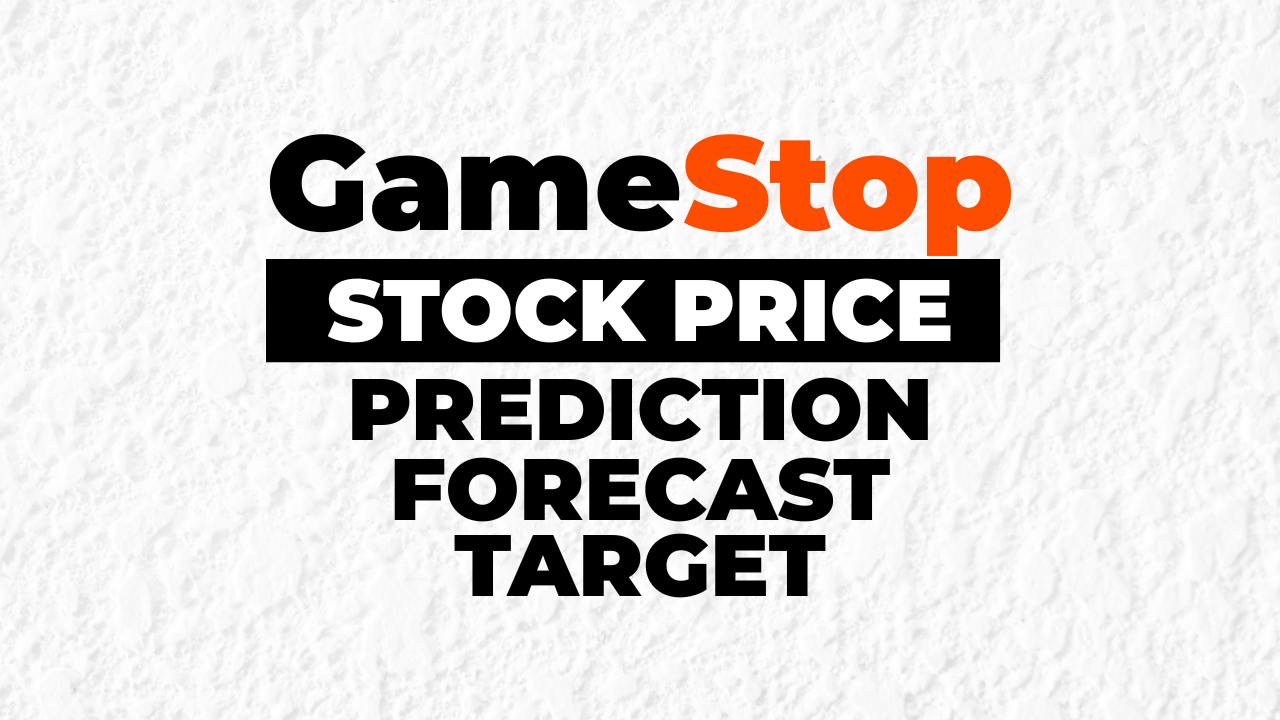GameStop Corp. (GME) has become a well-known name in recent years, thanks to a surge of attention from retail investors, big price swings, and major changes in the gaming and retail industries.
GameStop just made a move that nobody saw coming. After raising $1.5 billion through convertible notes, the company’s board decided to put some of that cash into Bitcoin. Yes, you read that right – the video game retailer is now betting on crypto.
Ryan Cohen, who’s been shaking things up since becoming CEO, pushed this strategy through. The timing wasn’t accidental either. With Bitcoin hitting new highs above $110,000, GameStop’s stock jumped 7.8% on May 23rd as investors got excited about the possibilities.
It’s not like GameStop is the first company to do this. We’ve seen other businesses add Bitcoin to their balance sheets as a way to protect against inflation and maybe catch some upside growth. But GameStop doing it feels different – this is a company that’s been struggling to figure out its identity in a digital world.
The retail crowd on X (formerly Twitter) is having a field day with this news. These are the same people who drove GME to crazy heights back in 2021, and they’re already speculating about how this crypto play could send the stock flying again. Some are calling it genius, others think it’s a distraction from GameStop’s real problems.
And those real problems haven’t gone anywhere. The company is still trying to reinvent itself while its core retail business faces serious headwinds. Physical game sales keep declining, digital downloads dominate the market, and GameStop’s stores aren’t exactly packed with customers these days.
So now we have a situation where GameStop is essentially making two bets at once: that they can successfully transform their business model AND that Bitcoin will continue its upward trajectory. That’s a lot of moving pieces for a company that’s already dealing with plenty of uncertainty.
The volatility factor can’t be ignored either. Anyone who’s followed crypto knows how quickly things can change. GameStop could see its treasury holdings swing wildly based on crypto market sentiment, which adds another layer of unpredictability to an already volatile stock.
Whether this turns out to be a stroke of genius or a costly mistake probably depends on your view of both GameStop’s transformation potential and Bitcoin’s long-term prospects. For now, it’s definitely got people talking – and that might be exactly what Cohen was hoping for.
In this article, we’ll explore everything from what the company does, the key factors affecting its stock price, the industry it belongs to, and speculative future price predictions for 2025, 2030, 2040, and 2050. Please remember, these future price forecasts are just guesses based on available information, and they come with a lot of uncertainty.
Company Overview
GameStop Corp. is one of the biggest names when it comes to selling video games, gaming consoles, and related products. Let’s start by understanding what the company is all about.
Key Company Details
| Company Name | GameStop Corp. |
| Sector | Consumer Discretionary |
| Industry | Specialty Retail |
| IPO Year | 2002 |
| Stock Exchange Listed | NYSE |
| Founded By | Leonard Riggio, Daniel DeMatteo, Richard Fontaine |
| Established In | 1984 |
| Specialization | Video games, consoles, gaming accessories, and collectibles |
Brief Summary
GameStop was founded in 1984 and is based in Grapevine, Texas. It operates more than 4,800 stores across countries like the United States, Canada, Australia, and parts of Europe. After going public in 2002, it became the world’s largest retailer of video games. For a long time, GameStop focused mainly on selling physical video games and consoles. But as more people started downloading games online, the company faced big challenges. In 2021, GameStop became a hot topic due to a sudden jump in its stock price caused by a group of retail investors. That event was called a “short squeeze” and pushed the stock price to record levels. Today, GameStop is trying to balance its old-school retail business with new ways to attract digital customers.
The Stock Market: Fundamentally Driven
Stock prices, including GME’s, are affected by both company performance and outside factors. Let’s look at the main ones:
- Earnings Performance: GameStop’s profits (or losses) from selling physical and digital products directly influence investor confidence.
- Economic Conditions: If people are spending more money, they’re more likely to buy games and consoles. A slow economy means less spending.
- Market Sentiment: GME is a special case. Its price often moves because of what people on social media say or do, not just because of the company’s performance.
This shows that GME’s stock price is shaped by both its business and outside excitement, which can make it unpredictable.
Sector Overview: Consumer Discretionary
Understanding the Sector
GameStop belongs to the Consumer Discretionary sector. This includes companies that sell non-essential products like clothes, entertainment, and electronics. These businesses do well when people have extra money to spend and often struggle during tough economic times.
Fundamental Factors Affecting the Sector
- Consumer Confidence: When people feel good about their financial future, they buy more things like video games.
- Technological Innovation: New tech like virtual reality or cloud gaming creates demand for newer products.
- Economic Cycles: During a recession or when inflation is high, people cut back on extra spending, which affects retailers like GameStop.
Growth and Development in Recent Years
The sector has seen mixed results. While traditional retail has taken a hit due to the growth of online shopping, gaming has actually done quite well. Trends like esports, mobile gaming, and people staying home during the COVID-19 lockdowns helped boost demand. GameStop tried to benefit from these trends, but its large number of physical stores is still a challenge.
Also Read – Important Differences between Centralized Exchange and Decentralized Exchange
Industry Analysis: Specialty Retail
Exploring the Industry
GameStop operates in the Specialty Retail industry, which focuses on selling specific products like video games and electronics. This industry moves fast because of constant changes in technology, tough competition, and a growing shift toward online shopping.
Fundamental Factors Impacting the Industry
- Digital Distribution: More people are downloading games online instead of buying discs, which hurts GameStop’s main business.
- E-commerce Competition: Big online stores like Amazon make it harder for GameStop to compete on price and convenience.
- Consumer Trends: People are getting interested in collectibles and retro games, which is a small but growing area.
Recent Growth and Developments
Specialty retail stores have had a rough time due to competition from online platforms. But for GameStop, one bright spot has been collectibles. In Q2 2022, the company made $223.2 million from collectibles alone, which was a big jump from the year before. Still, overall revenue dropped by 4.01% compared to the same time last year, showing that GameStop’s main business is still struggling.
Stock Growth and Fundamental Factors
GameStop’s stock tells a wild story. On one hand, the company has had serious financial problems. Its revenue dropped by 29.68% over three years, and it went from making a $34.7 million profit to losing $381.3 million. These are big red flags. But on the other hand, its stock price soared in 2021 because of massive support from retail investors who believed in the company or simply wanted to beat Wall Street. Going forward, GameStop’s stock will depend on how well it adapts to trends like digital gaming and collectibles while trying to fix its financial problems.
Speculative Targets: Technical Analysis Insights
Predicting stock prices many years into the future is tricky and full of guesswork. But based on technical data and market assumptions, here are some speculative price ranges for GME:
- 2025: Price estimates range from $16.49 to $44.25, with an average of $29.25. This shows both optimistic and cautious views.
- 2030: Projections vary from $16.07 to $62.69, with an average around $36.35, still showing lots of uncertainty.
- 2040: Not much data is available, but guesses suggest a range from $48.15 to $135.38, with an average of $95.73.
- 2050: These long-term forecasts are very speculative. Estimates go from $169.54 to $177.07, based on very hopeful assumptions.
Remember, these numbers are not investment advice. They’re just possibilities based on trends, market behavior, and a bit of hope.
Long-Term Growth Prospects
GameStop’s future is a topic of debate. On the positive side, its efforts to sell more collectibles and move into digital gaming might help it grow. But the company still has major issues, like falling revenue, big losses, and heavy competition from online and digital platforms. For GameStop to truly turn things around, it might need to make big moves—such as partnerships, acquisitions, or completely changing its business model. Plus, its stock price is still influenced by retail investors, which makes it even harder to predict. Overall, it’s a risky bet with the chance for high reward—or high loss.
Conclusion
GameStop (GME) stands at the crossroads between old-school retail and the fast-changing digital world. Its story includes falling sales, heavy losses, and pressure from online competition. But it also includes amazing stock price surges thanks to loyal and passionate retail investors. The price targets for 2025 ($29.25), 2030 ($36.35), 2040 ($95.73), and 2050 ($169.54) show what could happen—but none of these are guaranteed. For anyone thinking about investing in GME, it’s important to do proper research, understand the risks, and decide if the reward is worth the gamble.
Disclaimer: The information provided in this article is for educational and informational purposes only. It should not be considered financial or investment advice. Always do your own research or consult with a qualified financial advisor before making any investment decisions. Please note that all price forecasts and stock predictions mentioned are speculative in nature. The cryptocurrency and stock markets are highly volatile and unpredictable. Past performance is not indicative of future results.

